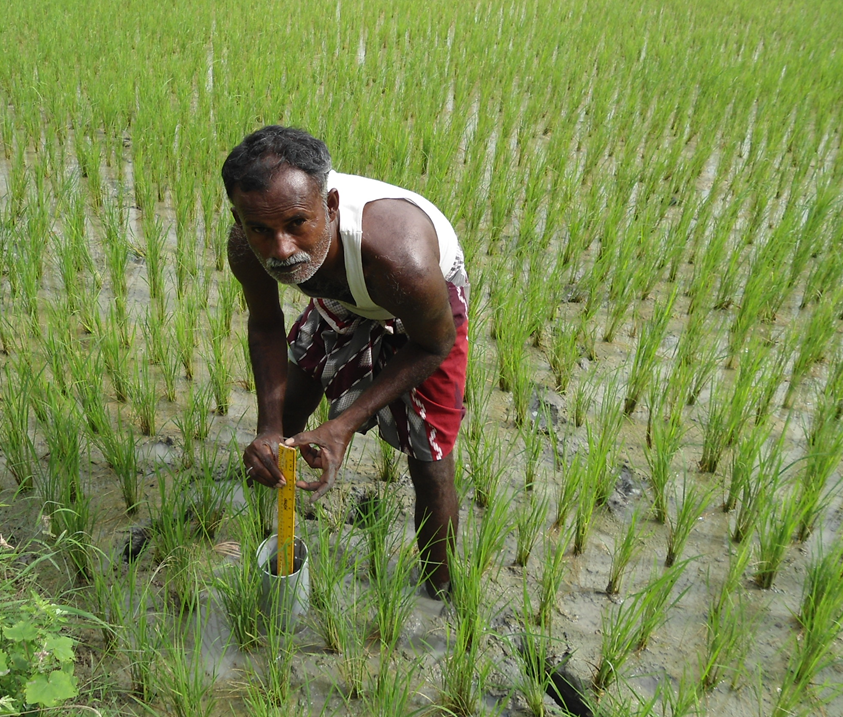This blog was co-authored by Richie Ahuja, Tapan Adhya & Kritee
By applying climate smart farming practices, small-holder farming communities in India can become more climate resilient, as well as improve yield and profit. But as recently revealed by Environmental Defense Fund, rice farmers using the well intentioned current prescribed irrigation practice – intermittent flooding – to improve mitigation and adaptation could be contributing to elevated emissions of nitrous oxide (N2O), a powerful, long-lived greenhouse gas.
In collaboration with the Fair Climate Network and a coalition of grassroots NGOs across India, we worked directly with small-holder farmers across 16,000 acres in five states between 2012 and 2016 to perform high frequency monitoring of methane (CH4) & N2O emissions for both business-as-usual and potential climate smart farming practices.










